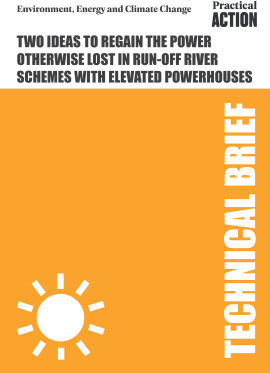
Managing the Globalized Environment
Local strategies to secure livelihoods
This volume considers the complexity of local-global interaction in environmental management; the focus is on understanding resource management as a socio-cultural concept. Interlinkages between resource base, supply, management and needs satisfaction are discussed from different perspectives and parts of the world to illustrate the impact of value systems, entitlement patterns, governance, the production of knowledge and norm systems, as well as the role of institutions and technology development in environmental management. The selected case studies show the central role of security in resource utilization. The potential for conflict stems not only from control of resources but also from different ways of thinking about the resource base and its proper use as a prerequisite of perceived social and environmental security; human relationship with the environment is never purely biologically based and rational. Socio-cultural systems encompass different perceptions of the environment, and influence the patterns and choices in its management. Concentration on local patterns of environmental security leads to the appearance of several definitions of security through varied situations in which people give meaning to their relationship to, and management of resources. Conflict is often generated from a collision of two or more different management systems, whether the emphasis is economic, cultural or value-related. The message of this book is to observe the urgent need to combine different perspectives in environmental management, both of different levels and of separate traditions and disciplines, as well as cultural and organizational experiences.
Published: 1999
Pages: 198
eBook: 9781780445403
Paperback: 9781853394515
| Preface | |||
|---|---|---|---|
| TiARHTTA GRANFELT vii | |||
| List of contributors xi | |||
| Life, livelihood, resources and security—Links, and a call for | |||
| a new order 1 | |||
| ANDERS HJORT-AF-ORNAS and JAN LUNDQVIST | |||
| Ogoni—Oil, resource flow and conflict in rural Nigeria 9 | |||
| O. OKECHUKWU IBEANU | |||
| Environmental awareness and conflict genesis—People versus | |||
| parks in Mkomazi Game Reserve, Tanzania 26 | |||
| PETER J. ROGERS, D. BROCKINGTON, H. KIWASILA and K. HOMEWOOD | |||
| Ethnic groups and the globalization process—Reflections on | |||
| the Amazonian groups of Peru from a human ecological | |||
| perspective 52 | |||
| MAJ-LIS FOLLER | |||
| Increasing competition, expanding strategies—Wage work | |||
| and resource utilization among the Paliyans of South India 66 | |||
| CHRISTER NORSTROM | |||
| Agroforestry intensification in the Amazon estuary 88 | |||
| EDUARDO S. BRONDIZIO | |||
| Rules, norms, organizations and actual practices—Land and water | |||
| management in the Ruaha River basin, | |||
| Tanzania 114 | |||
| JANNIK BOESEN, FAUSTIN MAGANGA and RIE ODGAARD | |||
| Sustainable development, industrial metabolism and the | |||
| process landscape—Reflections on regional material-flow studies 133 | |||
| STEFAN ANDERBERG | |||
| Environmental awareness, conflict genesis and governance 150 | |||
| GORAN HYDEN | |||
| Culture, cultural values, norms and meanings—A framework | |||
| for environmental understanding 164 | |||
| UNO SVEDIN | |||
| Bibliography 173 |





